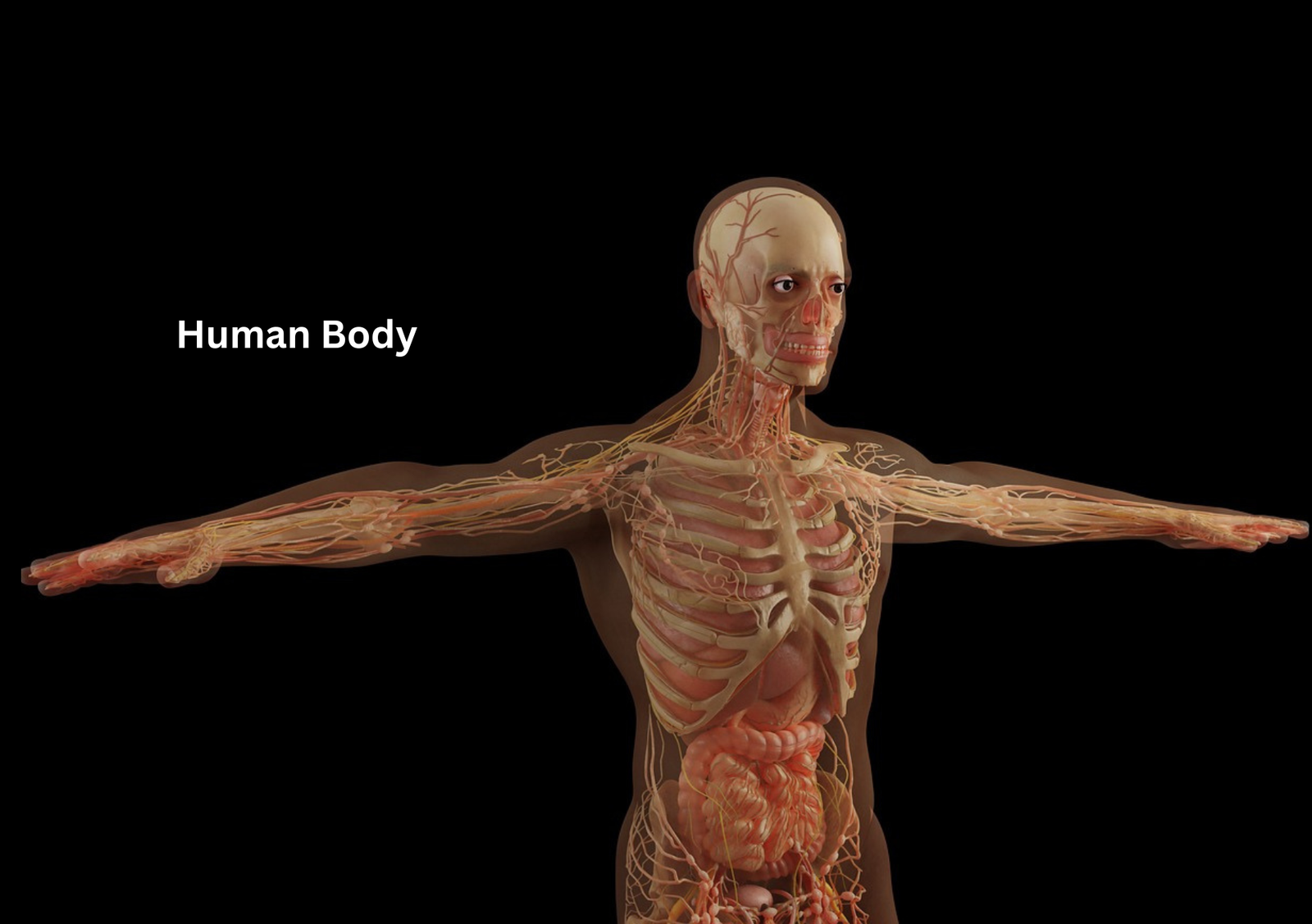- Introduction to the Human Body
Brief overview
Structure of the Human Body
Skeletal System
Muscular System
Circulatory System
Respiratory System
Digestive System
Nervous System
Importance of Understanding Human Anatomy
Common Health Issues Related to the Human Body
Obesity
Cardiovascular diseases
Respiratory disorders
Digestive problems
Neurological disorders
Tips for Maintaining a Healthy Body
Balanced diet
Regular exercise
Sufficient rest
Hydration
Stress management
The human body is a marvel of complexity and efficiency, a symphony of organs, tissues, and systems working together seamlessly to sustain life. From the intricate network of bones that provide structure to the muscles that enable movement, and from the rhythmic pumping of the heart to the delicate exchange of gases in the lungs, each component plays a vital role in maintaining health and well-being.
Understanding the Structure of the Human Body
Skeletal System
At the core of the human body lies the skeletal system, comprising bones, cartilage, and ligaments. Not only does it provide structural support and protection for organs, but it also serves as a storehouse for minerals and facilitates movement.
Muscular System
Working in tandem with the skeletal system is the muscular system, which consists of muscles that contract and relax to generate movement. From the powerful muscles of the legs to the intricate muscles of the face, this system enables everything from walking and talking to blinking and breathing.
Circulatory System
The circulatory system, powered by the heart, ensures the transportation of oxygen, nutrients, and waste products throughout the body. Comprising the heart, blood vessels, and blood, it plays a crucial role in maintaining homeostasis and supporting cellular functions.
Respiratory System
Responsible for the exchange of oxygen and carbon dioxide, the respiratory system includes the lungs and airways. Through breathing, oxygen is taken in, and carbon dioxide is expelled, supporting cellular respiration and providing the body with the oxygen it needs to function.
Digestive System
The digestive system processes food and extracts nutrients essential for energy production and growth. From the mouth, where digestion begins, to the intestines, where absorption occurs, this system plays a vital role in sustaining life.
Nervous System
Facilitating communication between different parts of the body, the nervous system comprises the brain, spinal cord, and nerves. It regulates bodily functions, coordinates movement, and enables sensory perception, allowing us to interact with our environment.
The Importance of Understanding Human Anatomy
Understanding the intricacies of the human body is essential for maintaining health and well-being. By recognizing the functions of different organs and systems, individuals can make informed choices about diet, exercise, and lifestyle habits.
Common Health Issues Related to the Human Body
Despite its resilience, the human body is susceptible to various health issues, ranging from minor ailments to life-threatening conditions. Obesity, cardiovascular diseases, respiratory disorders, digestive problems, and neurological disorders are among the most prevalent health concerns.
Tips for Maintaining a Healthy Body
While genetics and environmental factors play a role in health, lifestyle choices also significantly impact well-being. Adopting a balanced diet, engaging in regular exercise, prioritizing rest and relaxation, staying hydrated, and managing stress are essential for maintaining a healthy body and reducing the risk of chronic diseases.
Conclusion
The human body is a masterpiece of evolution, finely tuned to withstand the rigors of life. By understanding its structure and functions, individuals can take proactive steps to nurture their bodies and live vibrant, fulfilling lives.
Unique FAQs
What role does hydration play in maintaining a healthy body?
Hydration is essential for various bodily functions, including regulating body temperature, supporting digestion, and facilitating nutrient transport.
How does exercise benefit the human body?
Exercise strengthens muscles, improves cardiovascular health, enhances mood, and reduces the risk of chronic diseases such as diabetes and hypertension.
Why is it important to seek medical advice for health concerns?
Consulting a healthcare professional allows for early detection and treatment of health issues, reducing the risk of complications and improving outcomes.
How can individuals promote mental well-being?
Practicing mindfulness, engaging in hobbies, cultivating social connections, and seeking professional support when needed can all contribute to mental well-being. Conclusion
Exploring the Wonders of the Human Body
The human body is a marvel of complexity and efficiency, a symphony of organs, tissues, and systems working together seamlessly to sustain life. From the intricate network of bones that provide structure to the muscles that enable movement, and from the rhythmic pumping of the heart to the delicate exchange of gases in the lungs, each component plays a vital role in maintaining health and well-being.
Understanding the Structure of the Human Body
Skeletal System
At the core of the human body lies the skeletal system, comprising bones, cartilage, and ligaments. Not only does it provide structural support and protection for organs, but it also serves as a storehouse for minerals and facilitates movement.
Muscular System
Working in tandem with the skeletal system is the muscular system, which consists of muscles that contract and relax to generate movement. From the powerful muscles of the legs to the intricate muscles of the face, this system enables everything from walking and talking to blinking and breathing.
Respiratory System
Responsible for the exchange of oxygen and carbon dioxide, the respiratory system includes the lungs and airways. Through breathing, oxygen is taken in, and carbon dioxide is expelled, supporting cellular respiration and providing the body with the oxygen it needs to function.
Digestive System
The digestive system processes food and extracts nutrients essential for energy production and growth. From the mouth, where digestion begins, to the intestines, where absorption occurs, this system plays a vital role in sustaining life.
The Importance of Understanding Human Anatomy
Understanding the intricacies of the human body is essential for maintaining health and well-being. By recognizing the functions of different organs and systems, individuals can make informed choices about diet, exercise, and lifestyle habits.
